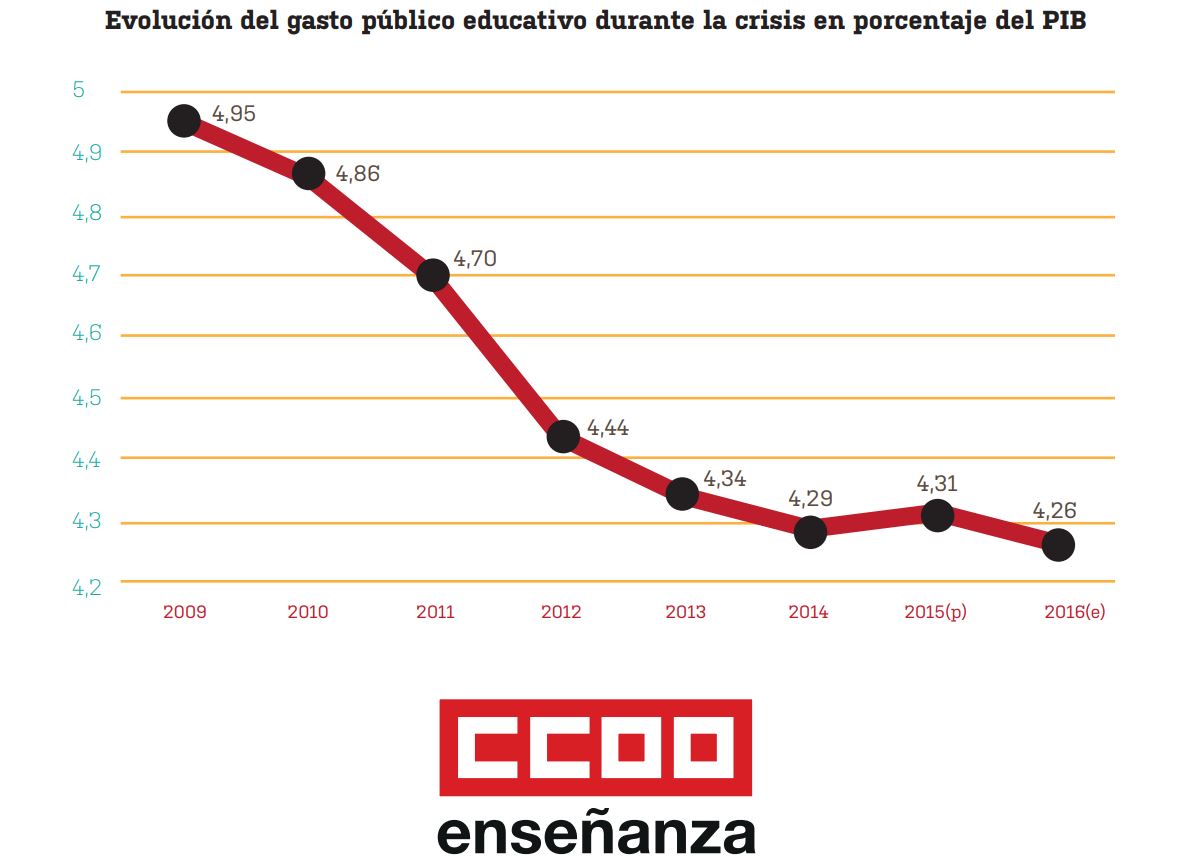Spain: Public investment urgently needed to improve equity and quality education
Published:
With the beginning of the new school year, the Education Federation of CC.OO (FE.CC.OO), one of ETUCE member organisations in Spain, published a report on the status of the public education (2009-2015), analyzing the effects of eight years of economic crisis on public education. The report is accompanied by an executive summary and a detailed study with charts and graphics by region.
In its report, FE.CC.OO highlighted the following findings:
- The economic crisis in Spain has been aggravated by the austerity measures and the decrease in public investment imposed unilaterally by the government;
- Social cuts have particularly hit disadvantaged and low-income families, by, for example, eliminating or dramatically reducing scholarships and grants as well as the so-called ‘compensation aids’ to promote diversity in the education sector;
- At the same time, government-approved fiscal ‘gifts’ benefiting the wealthier have accentuated the social inequalities, thus widening the educational divide in Spain;
- Social cuts are extremely harmful for the educational equity. By reducing the chances of provision of and access to quality education for all students, they compromise the fundamental principle of equal opportunities for all;
- Although differences exist between the regions, on average, 26% of staff in public education is employed on an interim basis. Thus, 1 out of 5 teachers works with a temporary contract, while education support personnel suffers from an even higher level of precariousness.
Against this background, FE.CC.OO urges the Spanish government and the relevant authorities to:
- Derogate the legislative measures backing the austerity and fiscal measures;
- Start a negotiation process towards an employment programme to revert social and economic cuts;
- Reactivate collective bargaining by ensuring the full effectiveness of the national collective agreement on the improvement of the public employment adopted in March 2017;
- Follow the implementation of the above mentioned agreement with an immediate increase of public employment in the education sector.
Appalled by the situation of the Spanish education system, as described in the report, ETUCE European Director, Susan Flocken, recalls that education is a fundamental human right, and that public investment is urgently needed to promote inclusion, equity and high-quality education in Spain.